Life
-
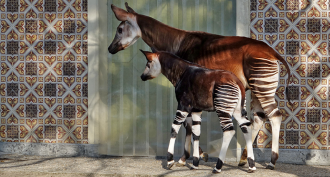 Animals
AnimalsScientists Say: Okapi
Okapis are African mammals that look a bit like horses and a bit like zebras. But they’re most closely related to giraffes.
-
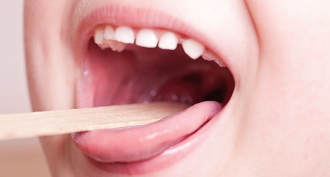 Health & Medicine
Health & MedicineWhat’s behind frequent strep throat? Consult the tonsils
A faulty immune response might explain why some kids get strep throat often, new data show. Another problem: The diagnosis may a case of mistaken identity.
-
 Climate
ClimateDisappearing sea ice could disrupt Arctic’s food web
When sea ice goes missing in the Arctic, every part of the ecosystem feels the effects.
-
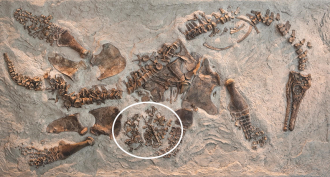 Fossils
FossilsBones show ancient marine reptile was a big baby
A new study of a rare baby plesiosaur reveals that these marine reptiles were huge at birth, then continued to grow speedily.
By Riley Black -
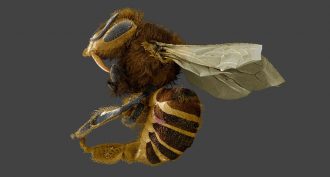 Animals
AnimalsBee parasite is more werewolf than vampire
Inventing fake bee larvae prompts scientists to rethink how a mite — ominously named Varroa destructor — does its damage.
By Susan Milius -
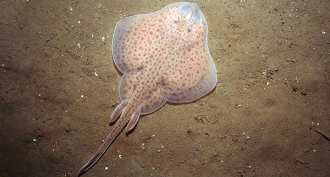 Animals
AnimalsOcean acidification may ground swimming skates
Fish might seem immune to acidic waters, but check their skeletons. They can be vulnerable and eventually alter how fish behave.
-
 Animals
AnimalsIs ocean acidification knocking the scents out of salmon?
In more acidic water, salmon don’t seem to recognize the smell of danger. Will their populations take a nosedive as carbon-dioxide levels rise?
By Beth Geiger -
 Animals
AnimalsAnimal graveyard found in deeply buried Antarctic lake
Mud from Antarctica’s Lake Mercer surprised scientists with what appeared to be the carcasses of tiny animals. A neighboring lake had only microbes.
-
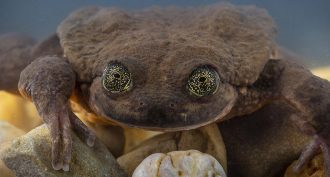 Animals
AnimalsA Bolivian frog species returns from the dead
A Bolivian frog was missing in the wild for 10 years. Scientists feared chytrid fungus had driven the frog extinct. Then they found 5 survivors.
By Jeremy Rehm -
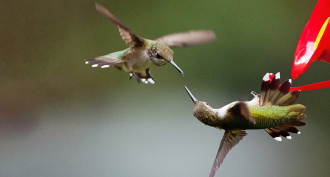 Animals
AnimalsSome male hummingbirds wield their bills as weapons
The shape of some hummingbird bills may reflect a trade-off between drinking nectar and fighting off the competition.
-
 Fossils
FossilsThis robot shows how an ancient creature might have walked
Scientists used fossils, footprints, a computer models and a life-sized walking robot to find out how an ancient creature moved.
-
 Plants
PlantsThis houseplant can clean indoor air
Houseplants may be able to help clean up polluted indoor air. Scientists gave this one a boost by givng it a gene from a rabbit.
By Diana Crow